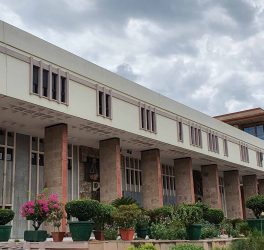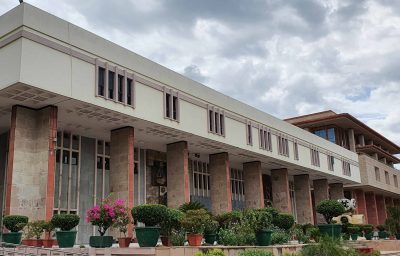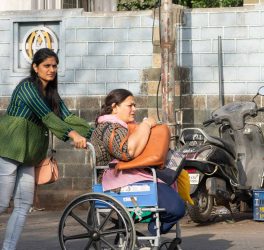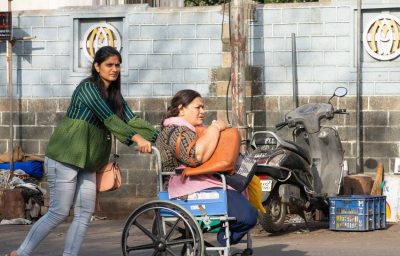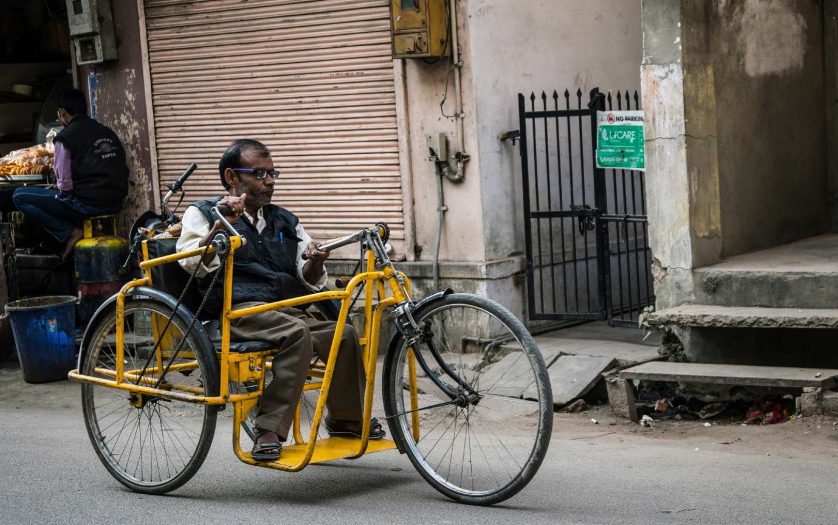
The ongoing COVID-19 Pandemic and the ensuing lockdowns severely curtailed the mobility of persons with disabilities, restricting their ability to access basic necessities, healthcare, and welfare assistance. An article published in India’s Economic and Political Weekly by Srei Chanda and T V Sekher points towards the pathways of neglect and vulnerability created by COVID-19.
During the lockdown, the support system for Persons with Disabilities has been considerably affected, which demands an active response from the government and society. Many Persons with Disabilities in India do not use any assistive devices and thus are dependent on others for performing their daily tasks. Availing transportation is a significant issue as access to medicines and basic needs, like going to the market or ration shops, is a concern for Persons with Disabilities who are staying alone.
According to NCPEDP (2020), 67% of Persons with Disabilities did not get essential items delivered at their doorstep. Repairing or replacing assistive devices (prosthesis, orthosis, hearing aids, spectacles, and wheelchairs) is difficult during lockdowns, worsening the disability by restricting movement.
Additionally, the language of communication for Persons with Disabilities varies. For instance, persons with vision disabilities employ and understand Braille, Persons with Disabilities in hearing and speech understand lip readings or sign languages. Our conventional information-dissemination systems, like daily news reports and announcements from governmental organisations/departments on electronic or hard copies of news or information, usually do not use any mode of sign language.
Covering of face with a mask or avoiding touching a surface due to a probable chance of infection adds another barrier in accessing information by Persons with Disabilities. These problems are compounded in rural areas where a significant share of Persons with Disabilities reside. Also, since the already few rehabilitation centres that provide services like prosthetics, orthotics, therapeutics, individual schools, and rehabilitation centres are located in faraway places, healthcare for Persons with Disabilities during the lockdown remains a major challenge.
Only 325 District Disability Rehabilitation Centres (DDRC) and few active non-governmental organisations (NGOs) are available to serve 27 million Persons with Disabilities (Ministry of Social Justice and Empowerment). Many DDRCs are not functional due to shortage of staff and supply during the lockdown. Confusion regarding the immediate contact to repair, replace, or purchase an assistive device can cause further anxiety among the users during the pandemic.
Transport for Persons with Disabilities in reaching these resource centres is practically absent. Additional expenditure to hire a vehicle or an escort to reach the clinics or rehabilitation centres adds economic burden. People with limited mobility or persons who cannot avoid coming into close contact with support providers and caregivers are more likely to be affected. Many caregivers are also reluctant to work or assist due to the fear of being exposed to the coronavirus.
Neglect, isolation and deprivation during COVID-19 can be minimised if the disability rights prioritised in programmes are oriented for pandemic mitigation. Maternal and reproductive rights are needed to be ensured for this specialised group. Health rights must be promoted and delivered with every possible support without delays in availing basic health demands. Limited accessibility to communication concerning COVID-19 and further restrictions in social connectedness due to the lockdown can result in trauma for Persons with Disabilities.
Those with severe disabilities and those living alone have an extra cost of living due to higher medical expenses, assistance for caregiving, transportation, and overall disability cost. Based on the data on the requirement of daily assistance, it can be comprehended that due to lockdowns and restrictions in supportive services, the situation has grown miserable for Persons with Disabilities. Family members and friends are not allowed to travel to visit them, and as assistance is not always available, it restricts their daily activities. Limited number of caregivers at homes for Persons with Disabilities stretches the already scarce amenities such as sanitation, medical supplies and therapeutic exercises.
Persons with Disabilities suffering from health conditions like cerebral palsy, stroke, paralysis and upper limb amputation are far away from particular protocols and safety precautions that heighten the risk of infectious diseases. For example, regular cleaning of hand, wearing a mask all by themselves and maintaining physical distance is difficult for the dependant Persons with Disabilities.
Persons with Disabilities have more healthcare needs and higher healthcare expenditure than others and usually report higher unmet needs in accessing healthcare services due to long waiting lists, lack of accessible transportation, medicines costs, and inadequate primary care benefits. Behavioural risk factors lead to lesser functions and a higher chance of growth of chronic conditions like cardiovascular diseases, diabetes and respiratory diseases. There is a higher possibility of increased risk of infections from COVID-19 among Persons with Disabilities due to their comorbid conditions and disadvantaged living conditions.
Besides the social and economic factors, demographic factors like age become crucial as elderly Persons with Disabilities are more helpless in terms of seeking care.

